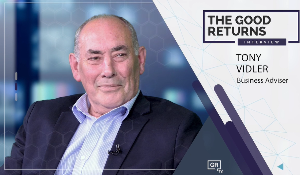
“They’ve spent so much time focusing on building systems and now they’re trying to make those systems work more profitably.”
He says there is a lot of activity around issues such as what software systems to use, whether to stick with their current CRM and whether they need to bring on new staff. Most are well bedded down in terms of meeting regulatory expectations.
People in the sector are also moving around. Vidler says commentators including himself have said people would herd for safety with the new regulations coming in and then in the two or three years following that, a bunch which would want to break away from the herd again.
“And we’re starting to see that happen. We’re effectively just over two years into the new world, so it’s about when we would have expected it, maybe a little bit early.
“But we’re certainly seeing a lot of advisory firms and individual advisers wanting to break away from institutional control and set up independently.”
He says there’s still that generic Kiwi attitude of ‘I want to be my own boss’ and lifestyle is still a big driver in New Zealand.
Outside of the main centres, people that are well embedded in their communities and they’re known by their personal brand rather than an xyz limited brand. “They crave personal recognition and they crave personal control.”
Vidler says a number of large institutions haven’t done themselves any favours by trying to exert too much control over their advisers.
Particularly in the insurance and lending space, large institutions are getting more involved and more variability.
Vidler says while it's understandable in the new regulatory environment that institutions want some oversight of their distribution channels to ensure compliance, some are going too far in exerting control.
“They step over the line when they start questioning the suitability of the advice given, and we’re seeing that coming through in a number of ways. We’re seeing that in customer satisfaction surveys sent out by institutions after a proposal has been put in
place, we’re seeing it from dealer groups and mortgage aggregators questioning whether or not a particular loan structure was appropriate.
“More often than not, the people doing the questioning have got no advice qualifications themselves. So I really question their competency to question the competency of the advisers.”
There is a professional body for advisers, it’s voluntary and doesn’t lobby particularly well or hard on adviser issues, says Vidler. “It lobbies on legislative issues but it doesn’t represent advisers.
“For example we’ve never seen FANZ take on FSC for interpretations and I would’ve thought that would be a natural battleground. Instead they seem to be letting FSC move into adviser management space. There’s no unified adviser voice out there and realistically all they can turn to is their dealer groups if they belong to one.”
On the question of whether the Financial Markets Authority is getting overly involved in how advice is given, Vidler says they’ve been “pretty good” in how they are approaching monitoring.




Comments
No comments yet.
Sign In to add your comment